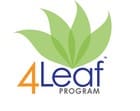At The Food Channel, we receive many requests for more information about healthy eating. We’ve invited this author to provide his perspective.
 Every week we hear of another celebrity that has decided to adopt a vegan diet-style: Bill Clinton, Venus Williams, and Brad Pitt—to name a few. They typically make the switch for moral, environmental or health reasons. But is their vegan diet really healthier? That’s hard to say because we really don’t know what they ARE eating—as the definition of vegan only implies what they are avoiding.
Every week we hear of another celebrity that has decided to adopt a vegan diet-style: Bill Clinton, Venus Williams, and Brad Pitt—to name a few. They typically make the switch for moral, environmental or health reasons. But is their vegan diet really healthier? That’s hard to say because we really don’t know what they ARE eating—as the definition of vegan only implies what they are avoiding.
Ask any vegan what they eat and they’ll likely begin with a list of what they don’t eat—meat, dairy, eggs, fish, etc. But unless we know what they ARE eating, we won’t have a clue how healthy their new dietary regimen truly is. For all we know, they may be pigging out on consumable food-like substances: french fries, corn chips, sugary sweets, white pasta, bread dipped in olive oil, and Diet Coke; not “real food” as Michael Pollan (In Defense of Food) would say.
My observation is that many vegans eat a very unhealthy diet compared to the optimal diet for humans. For that definition, I refer to the wisdom of Dr. T. Colin Campbell (The China Study): “The closer we get to a diet of whole, plant-based foods, the better off we will be.” Like our ancestors in the wild and the strongest animals in the world, our optimal diet simply means deriving 100% of our calories from whole, un-refined plants—still in Nature’s package.
So, how is the typical American doing on Dr. Campbell’s scale? Not so great. On average, we derive far less than 10 percent of our calories from whole plants. The vegetarians and vegans among us are probably consuming more, but I would bet that even their number is less than 20 percent? And that’s why many vegetarians get fat.
So what is much healthier than vegan? In our book, Healthy Eating, Healthy World, we describe it as the 4Leaf Program—leveraging the simple, yet powerful concept of maximizing the percent of your calories from whole plants. We shoot for 80% or more—and it’s not necessarily vegan or vegetarian. As Dr. Joel Fuhrman, author of Eat to Live, says, “Following a strict vegetarian diet is not as important as eating a diet rich in fresh fruits and vegetables.”
Want to take charge of your own health? You can learn how to do just that by following the simple 4Leaf Program guidelines.


